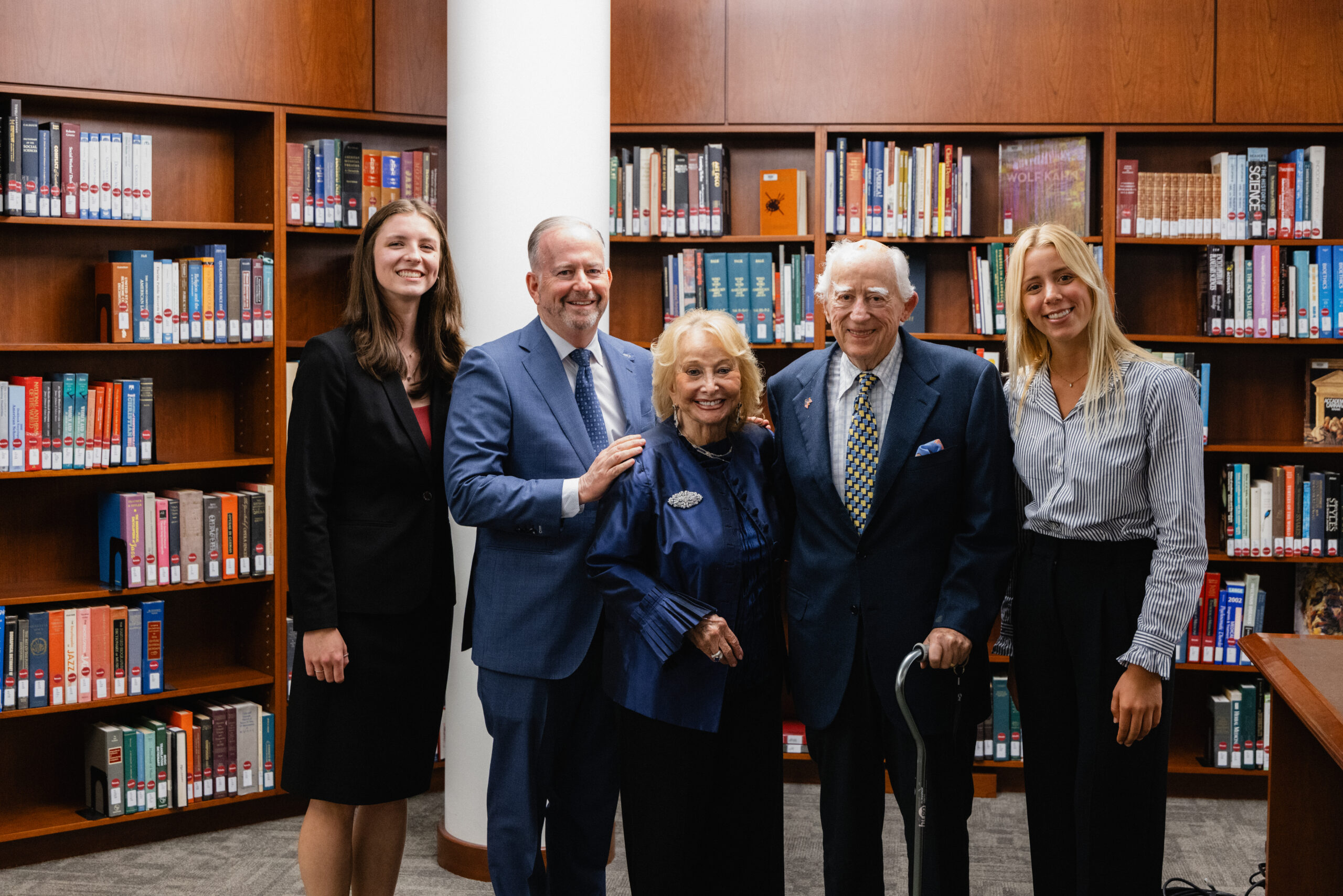Even the most menial work isn’t meaningless – it informs creativity and frees up the intellect for other pursuits, Dr. Jenifer Elmore said, drawing plenty of examples from the great American novelists.
Elmore, an English professor who won the Corts Award for Outstanding Teaching in 2013, gave the sixth and final faculty lecture in a series on the Christian university. She derived the lecture’s title, “Who Ain’t a Slave?” from the Herman Melville novel “Moby Dick.”
Many 19th century American novelists – and the characters they created – at some point in their lives held mundane jobs that ultimately inspired their writing, Elmore said.
Melville worked on whaling ships and as a seaman in the U.S. Navy before he wrote. Nathaniel Hawthorne worked in the U.S. Custom House in Salem. Harriet Beecher Stowe had seven children.
The authors recognized that their dignity and freedom ultimately came from God, even if they, like Frederick Douglass, were physically enslaved, Elmore said. They didn’t let the reality of their daily grind stifle their creative work. In many cases, it informed their work.
For example, Ishmael, the main character in “Moby Dick,” made a direct connection between his work as a sailor and the cultivation of his intellect. Hester Prynne, the protagonist of Hawthorne’s novel “The Scarlet Letter,” was a seamstress who cared for the sick at night and, through her hard work, earned the respect of the community that had shunned her.
One chapter of the novel gives a look into the fictional Prynne’s sophisticated ideas about society, men and women, Elmore said. Despite her outward oppression, she knew a higher truth.
Freedom sanctifies honest human labor, Elmore said. But sometimes, people have no freedom – either a lack of opportunity to grow their intellect or lack of enough faith to relieve their oppression in the present.
Elmore invoked an example from Melville’s “The Paradise of Bachelors and the Tartarus of Maids,” which describes the isolation of women working 12-hour days six days a week in a paper mill in New England. They work in dim lighting on machines with sharp blades. The lint particles in the air make it hard to breathe.
Melville depicts the workers serving the machines as the ultimate dehumanization.
“You’ve heard of the walking dead? Melville portrays these women as the working dead,” Elmore said.
The realities of life were worse for slaves, who were considered property. Some slaves were liberated intellectually and spiritually, despite their physical shackles, Elmore said.
For example, Douglass credited God for giving him the ability to read – against all odds – and his literacy for his freedom. His master’s wife taught Douglass until her husband berated her, saying that education would ruin a slave forever. Douglass began to understand the white man’s power to enslave and the pathway to freedom, Elmore said. Douglass read Bibles that were left about and every scrap of writing he could get his hands on.
“Literacy was the key that unlocked his shackles,” Elmore said.
He used his will and the freedom of his mind to prepare for physical freedom, Elmore said.
In the 20th century, Uncle Tom in Stowe’s “Uncle Tom’s Cabin” became a negative stereotype about race — someone who sucks up to the power structure, she said. In actuality, Uncle Tom is the hero of the story, because he encourages the younger slaves to escape. He knows that his life on earth is a flash in the pan and that he will live forever in eternity.
“He is a hero. He is not a negative stereotype in the context of Christianity, which is the context in which Harriet Beecher Stowe wrote the novel,” Elmore said.
Through literary examples, Elmore illustrated her point that the “need to work need not limit our intellects.” A Christian liberal arts education isn’t about getting a job, she said. It’s about preparing the mind to find fulfillment in life, no matter what job or profession one has.
The liberal arts offer a unique freedom.
“If we have education, if we have faith, if we have literacy, if we have knowledge of the Bible…we can take that with us,” Elmore said. “We can cultivate our minds under any circumstances.”

